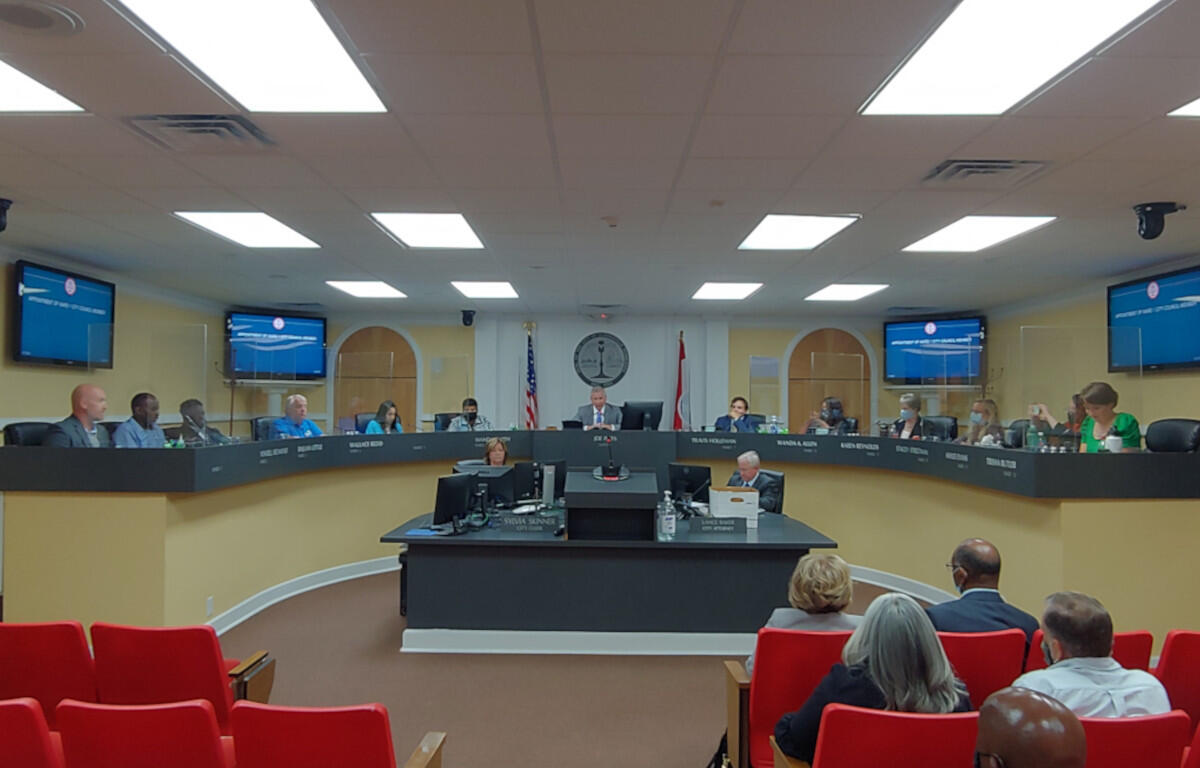CLARKSVILLE, TN (CLARKSVILLE NOW) – New legislation before the City Council could trigger a referendum to reorganize the City of Clarksville under a “home rule” charter, and council members have questions. Questions such as, what is a home rule charter?
The ordinance sponsored by Councilmember Trisha Butler would add a referendum to the November ballot asking citizens if they would like Clarksville to have a home rule charter, something she has often expressed interest in.
“This should be no surprise because I’ve been yelling this from my seat for the last year,” Butler said during last Thursday’s meeting.
What is ‘home rule?’
In Tennessee, home rule allows a city to change its own charter – essentially the city’s constitution – by referendum. Should Butler’s amendment succeed, home rule would be added to the November ballot.
Basically, under home rule, citizens vote directly on charter amendments every two years. A common model involves the formation of a committee to draft amendments, which are then added to the ballot.
Clarksville currently has a “private act” charter, which requires approval of the state Legislature to change. A home rule charter would remove the state government from the equation, taking city matters to the citizens.
“Essentially, we get to change our charter at the city level after allowing the people of Clarksville to vote on amendments to our charter,” Butler said at the meeting. “It essentially just says that we can make the best decisions for Clarksville rather than the state Legislature, more specifically that the people should get more of a vote on what we’re doing up here.”
Home rule also allows citizens to add amendments via petition.
According to Butler, 17 Tennessee cities have a home rule charter, including Knoxville, Chattanooga and Memphis.
‘Too big to get wrong’
Several council members voiced concerns about a home rule referendum.
Brian Zacharias told fellow council members he fears a home rule charter could lead to politicizing of the city’s charter by subjecting it to the campaign process, which is often dictated by which side outspends the other.
Furthermore, he suggested home rule is a complicated issue, and there may not be enough time for voters to make an informed decision by November.
“I think the simplicity of the question, ‘Should Clarksville adopt home rule?’ belies the gravity of the consequences of this decision. How many voters understand what that question is really asking? How many people in this room understand what that question is really asking?
“Before we put this on the ballot, I believe the city owes its residents information,” Zacharias said. “This is too big to get wrong. We need the highest voter turnout possible, and we need these voters to fully understand what they’re being asked to consider.”
Councilmember Stacey Streetman voiced opposition to a home rule referendum, suggesting the city’s current structure works and doesn’t need fixing.
“Our government has been working efficiently and effectively since we’ve been incorporated. We’ve been a private act charter for a long time,” Streetman said.
Vondell Richmond, Wanda Smith, Karen Reynolds and Joe Shakeenab voiced similar concerns, citing the need for more information.
‘A lot of it is catastrophizing’
Butler responded by suggesting that those concerns underestimate the average voter, and that, if three months is enough time to decide on what candidate to vote for, it’s enough time to learn about home rule.
“I’m really let down by the amount of distrust that I hear for the voter, for the citizen. … The fact that things get politicized should not squash the voice of the people,” Butler said.
Butler referred to some concerns as “catastrophizing,” but said she could see the benefit of holding off on a referendum until the next presidential election, which always sees highest turnout in Montgomery County, and that would be in November 2024.
Joining Butler in expressing support of a home rule referendum were Wallace Redd and Ambar Marquis.
The City Council will vote on at their meeting Thursday at 6 p.m. If passed, the measure will require a second vote at the next meeting currently scheduled for July 7.
Correction: A previous version of this article should have said the referendum would be on the November ballot. The article has been updated.


